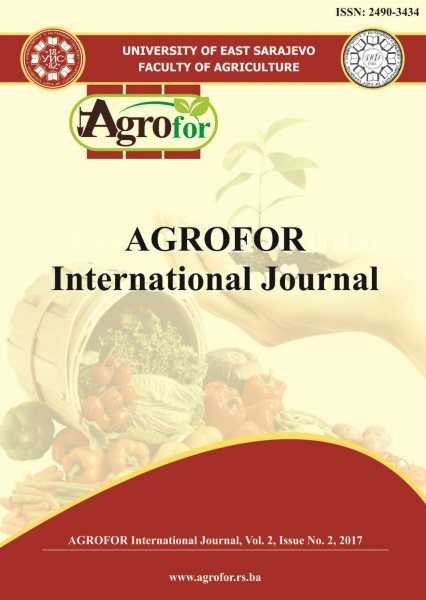TOWARDS AN INTEGRATED ANALYTICAL FRAMEWORK TO MAP SUSTAINABILITY TRANSITIONS IN FOOD SYSTEMS
DOI:
https://doi.org/10.7251/AGRENG1702015TAbstract
Transitions to sustainable food systems are considered necessary to address
sustainability challenges in industrial food systems – but also to achieve food and
nutrition security especially in countries of the South. To facilitate such transitions,
we need a thorough analytical understanding of change processes in food systems.
Different transition frameworks have been suggested in the literature, with the
Multi-Level Perspective (MLP) on socio-technical transitions being the most
prominent. While MLP has proven to be a useful heuristic, earlier studies have
identified weak points (e.g. regarding agency, power, landscape factors and
institutional innovations) calling for the integration of complementary concepts.
This paper proposes a framework for the analysis of sustainability transitions in
food systems that integrates elements of the Social Practices Approach, Transition
Management, Strategic Niche Management and Innovation Systems. The starting
point of the suggested analytical process is to map emerging sustainable food
systems along the MLP levels of niche, regime and landscape. To better understand
processes of creating and developing initiatives in food systems, our mapping relies
on Innovation System approaches (e.g. identifying actors and their networks),
Transition Management (e.g. niche stabilization and expansion processes) and
Strategic Niche Management (e.g. breakthroughs). As wider transitions require a
reconfiguration of relevant regimes, interactions across levels are of particular
interest. The Social Practices Approach helps to make niche-regime interactions
explicit. Finally, by looking at the impacts and outcomes of change initiatives, we
can make statements about the type of transition pathway taken – and whether an
initiative has transformative potential or is an incremental adaptation. Further work
is needed to refine and test the framework in different contexts.

